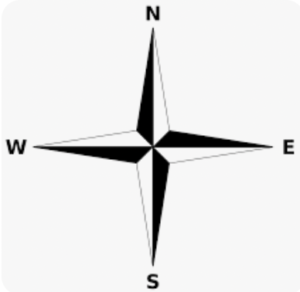“We are each other’s reference point at our turning points.”
– Elizabeth Fishel
The most common, and the one used for centuries, is the North Star, but there are also the cardinal points of the compass. Then there’s the infamous ten point scale (With 1 being none and 10 excruciating). My son advised me that he is expected to meet one on a monthly, quarterly and yearly basis. During golf season this one is updated daily to reflect recently posted scores and once a month my bank will notify me that the one related to my credit is now available. They go by a variety of names, and they generally serve as a standard against which we compare ourselves or our actions. They are called “Reference Points” and they play a crucial role in shaping our self-image, expectations, and motivation.
A reference point is a basis or standard for evaluation, assessment, or comparison. Often it becomes the basis for self-judgement. That being said, have you ever taken a moment to consider the multiple reference points ever-present in our lives and their impact? Regardless of our conscious awareness, we all have reference points for every component of our life. These points are powerful, as they influence not only what we do and who we become, but also our levels of satisfaction with and the happiness we experience in our lives. They become the standards we look to for guidance in shaping our path and fulfilling our destiny, and they are both internal and external.
External reference points can provide a sense of belonging and identity, as we align ourselves with certain groups, ideals or a faith. The lessons contained in the Bible, Torah and Quran all serve as external reference points. Likewise, external reference points can include social and cultural norms, media representations, and unfortunately the achievements of others. We care too much about where we stand relative to other people. Known as social comparison, this has nothing to do with where we are right now, or where we were before. It’s the reference point of where other people are. We mistakenly evaluate and judge ourselves relative to the salary, possessions, abilities, beauty, etc. of others.
Internal reference points, on the other hand, are more powerful, as they stem from our own values, beliefs, and aspirations. These may include our personal values, goals, and standards of excellence. Internal reference points can help us stay true to ourselves, cultivate our unique talents and passions, and pursue a fulfilling life. They can also provide a sense of autonomy and self-determination, as we choose our own paths and measure our success based on our own criteria.
Both external and internal reference points can be beneficial for our well-being, as they help us make sense of our lives and progress toward our goals. However, it is important to use reference points wisely and critically, as they can also have negative consequences. One way to harness the power of reference points for success and happiness is to cultivate a growth mindset. This involves adopting a perspective that sees challenges, setbacks, and failures as opportunities for learning and growth, rather than fixed traits or judgments of worth. Another approach to using internal reference points for success and happiness is to adopt a values-based approach to goal-setting. This involves identifying our core values and using them as a guidepost for our decisions and actions. By aligning our goals with our values, we can create a sense of purpose, meaning, and coherence in our lives.
Without question our lives are influenced by the reference points that surround us, however the path we walk is determined by the choices we make. The key to discovering success and happiness is not to be found through external comparison, but rather through introspection. Only when we have an understanding of our values and goals, our strengths and weaknesses, and the inherent value of our closest relationships, will our path become one of our own choosing.
Embrace the Challenge.

